The three-part original documentary series ‘Superpowered: The DC Story’ premieres July 20th on Max.
Premiering on Max July 20th is the three-part original documentary series ‘Superpowered: The DC Story,’ which examines the history and impact of DC Comics. The series was co-directed by Academy Award-nominated filmmaker Leslie Iwerks (‘100 Years of Warner Bros.’) and Peabody Award-winning filmmaker Mark Catalena (‘Johnny Carson: King of Late Night‘), and was narrated by Rosario Dawson (‘Ahsoka’).
What is ‘Superpowered: The DC Story’ about?
‘Superpowered: The DC Story’ takes an unprecedented look at the enduring and influential legacy of DC, allowing fans to rediscover the universe of characters, as well as the iconic comic book company’s origins, its evolution and its nearly nine-decade cultural impact across every artistic medium. The series features a wealth of interviews with the industry’s most prolific creators and the actors who bring their iconic characters from the page to the screen.
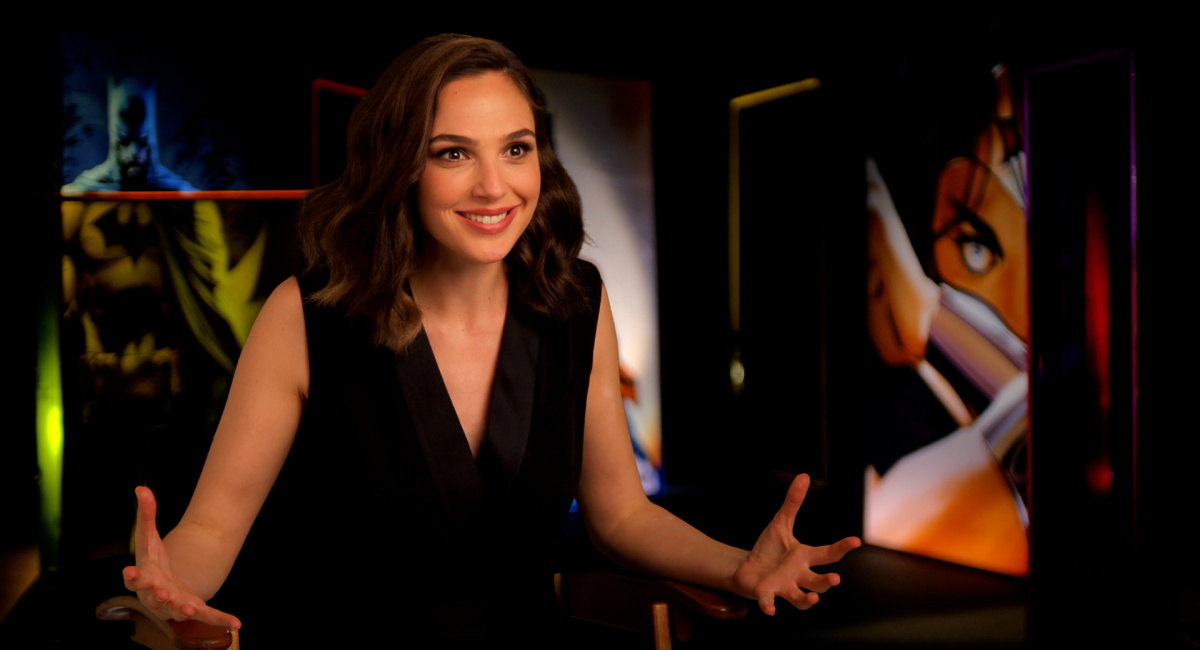
Gal Gadot in ‘Superpowered: The DC Story.’ Photograph by Courtesy of Max/Warner Bros.
Related Article: Where To Watch The Multiverse-Jumping Superhero Adventure ‘The Flash’
Who appears in ‘Superpowered: The DC Story’?
ECinema News recently had the pleasure of speaking with co-directors Leslie Iwerks and Mark Catalena about their work on ‘Superpowered: The DC Story,’ making it different from past documentaries about DC, focusing on the good and the bad, what they learned that surprised them, the unique structure of the series, fitting the 90-year history into three episodes, assembling the interview and archival footage, and the importance of diversity in comics.

(Left) Co-directors Leslie Iwerks and (Right) co-director Mark Catalena of the three-part original documentary series ‘Superpowered: The DC Story’ which premieres July 20th on Max.
ECinema News: To begin with, there have been several documentaries about the history of DC Comics in the past, how did you approach making this series different from previous DC documentaries?
Leslie Iwerks: So I think when Warner Bros. came to me to do the DC series and also the ‘100 Years of Warner Brothers,’ they were really inspired by ‘The Imagineering Story’ at Disney for Disney+, and said, “We’d love to have you do an approach for DC that’s very similar to what you did for Disney, in that it was warts and all. Tell the story as is. Be honest. Come at it with your own take on DC through time and where the pitfalls were and where the highs were.” We basically had various layers that we weaved in, which was the artist’s story and the personal stories of the artists, but then also the business story, the competition story, the character story, and then the culture story of what’s going on out in the culture that’s influencing these comics and vice versa. So we had to weave those layers like an onion together. Then early on we talked with HBO, and it was important to them and us to basically not tell this in a totally straight chronological way, but be able to flash forward and flashback so that we could remind the audience that this is present, that these characters still live and breathe today in a different form, but this is the beginning of it. So Mark worked with our graphic designer who I thought did a really great take of this time scroller through the years to sort of remind us of, hey, we’re going back. It wasn’t always like this, or here it is today. So it was challenging to always know which one do we flash forward to and why? What’s the theme there and what’s the point of it? It was like a big puzzle.
Mark Catalena: I just wanted to add one thing to what you were saying earlier, Leslie. I think the other organizing principle for us, is that we wanted to come at it from an inspiration point of view. These are people, these are creators, from their point of view, that at some point during their life, they had a revelation, looking at a DC comic, or watching a cartoon. Something hit them hard to make them want to dedicate their lives to working in this industry and then filter that back out through their experience to inspire the next generation. So I think we wanted to really come at it from, why are these people passionate? How are they passionate? Trying to find the emotion that hit them and then dedicated their lives moving forward. We wanted to make it accessible to people. There are a lot of casual fans out there who know this more through maybe cartoons or movies, but it was important to us to say, look, that might be the entry point, but we want to show you where this all came from. We wanted to have them appreciate the source material, like 90 years of comic books. So I think that was one of our main goals, to approach it that way.
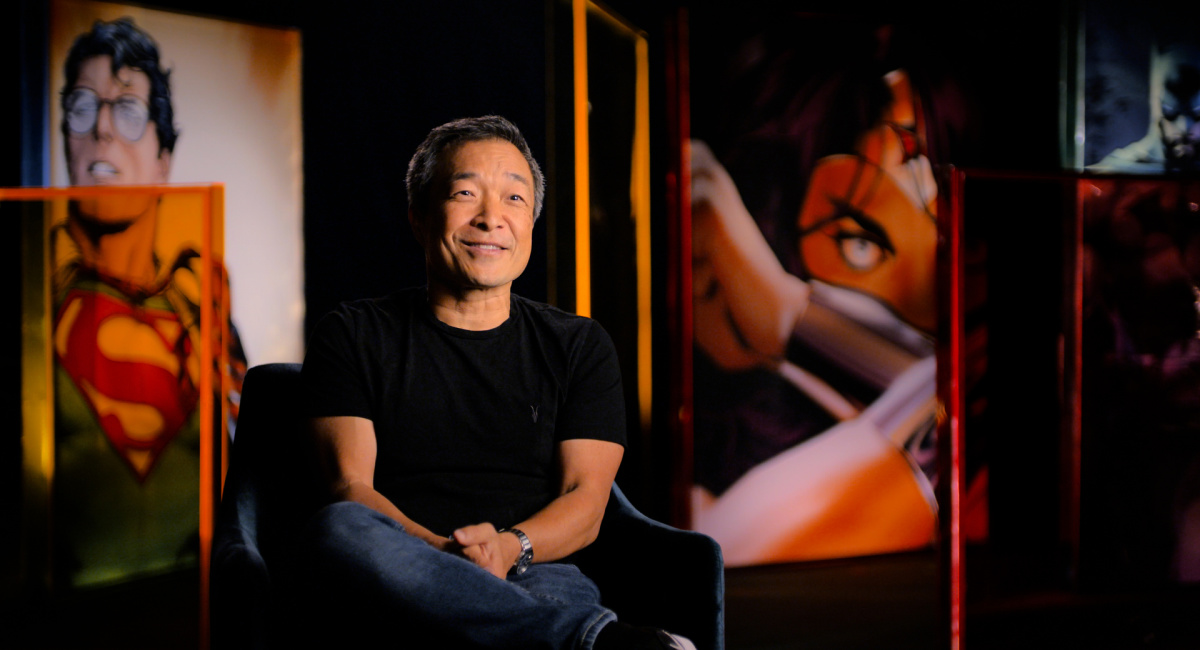
Jim Lee in ‘Superpowered: The DC Story.’ Photograph by Courtesy of Max/Warner Bros.
MF: It seems like Warner Bros. gave you a lot of freedom to tell the story that you wanted and to be able to include the bad with the good. Was there anything that you discovered that you decided not to include for any reason?
LI: That’s a good question. I think, for the most part, we felt like what we included was the most relevant to the overall story we were trying to tell. Whatever subject we do, whether it be Disney and Imagineering or Warner Brothers and DC, you look at the scope of these histories and you go, there’s so many little dramas and infighting that can happen within an artist or a studio or anything. But you have to pick and choose what are the ones that really are going to matter in the scheme of the entire scope of the storytelling, the years, the span of the years? What are the things that are the big turning points versus just little infighting. Those are the things that the media might like to cover. But for something that’s a real timestamp of history and a piece that’s going to sit on a server on a streaming service for a long time, we want to make sure that we’re really hitting the most important things.
MC: I think the other thing is we wanted to not have story points feel repetitive. A creator and a corporate entity, their relationship and the creative tension, that’s a never ending battle, through any creative industry. So I feel like we’re like, let’s pick the one that’s emblematic of that. Let’s focus on it but we don’t have to hit it every single time it happens because it still happens. I don’t think that’s anything new, and I don’t think that’s necessarily something the audience wants to just keep seeing. It would get boring after a while. So I think we approached every story beat in that way of like, when did it really matter? Let’s focus on that one specific, and that’s emblematic of all of the circumstances, all the occurrences.
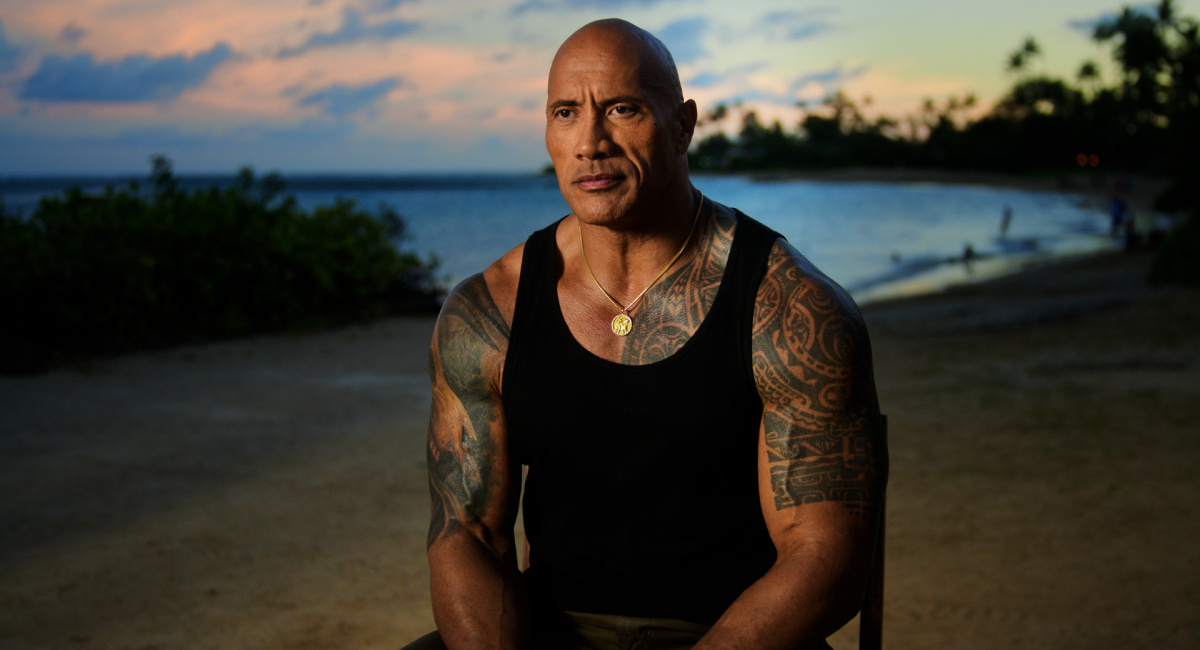
Dwayne Johnson in ‘Superpowered: The DC Story.’ Photograph by Courtesy of Max/Warner Bros.
MF: The series includes low points in DC history like the poor treatment of Superman creators Jerry Siegel and Joe Shuster, lack of diversity and representation, and the financial failures of movies like ‘Justice League’ and ‘Black Adam.’ Was there anything that the studio asked you to not include?
MC: Look, I think there are always sensitivities around companies’ histories. I think we just wanted to approach it in a very matter of fact way and not editorialize, and basically just tell the truth, tell it neutrally and move on. I think the larger point that we kept going back to was, look, each one of these story points could have been its own documentary. It’s huge, it’s deep, it’s rabbit holes that you can fall into. We wanted to stay on the level of the scope. I think when you look at it as a whole, there’s only so much time you can really bring things up. So we’re constantly trying to think, okay, what does that add to the larger story? We would’ve liked to include a lot of stuff, but things just naturally fall away when you keep your eye on that big picture.
MF: With over 90-years of comics, movies and TV shows, there’s a lot of history to fit in and it seemed like almost everything DC has ever produced was represented in the series. Can you talk about the challenges of trying to fit everything in?
LI: I think it’s hard to acknowledge everything, and I don’t think you ever can. I think what we try to do is put things in there that are quick, perhaps, if we can’t go into coverage on them. We at least acknowledge them briefly, or they’re in the background or they’re in a montage or something, so that we can at least say we’ve acknowledged it, but we don’t necessarily have to stop, otherwise it would just become a long, rambling story. So again, it is just choosing your battles.
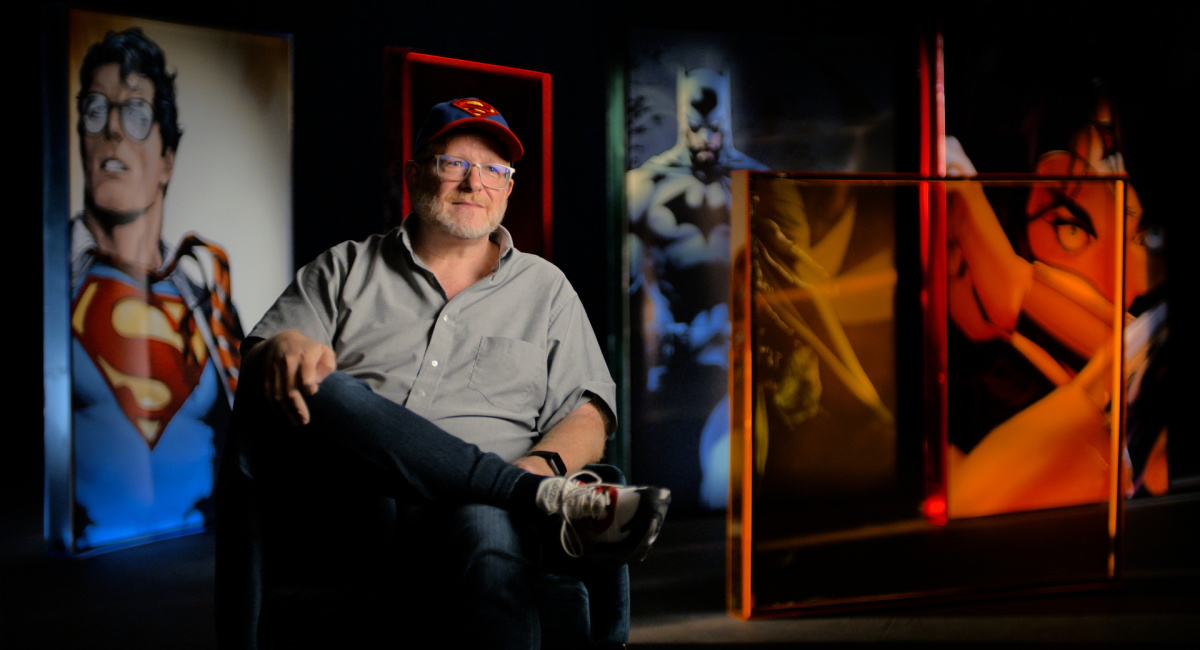
Mark Waid in ‘Superpowered: The DC Story.’ Photograph by Courtesy of Max/Warner Bros.
MF: As a comic book fan, I know legendary names like Alex Ross, Mark Waid, and Keith Giffen, but a lot of people watching the series may not. Can you talk about the importance of highlighting the comic book creators with this series?
MC: I agree. They’re not household names. I think a large part of it though was, it’s more about what do they represent, and it’s more of their emotion and passion towards this subject that we wanted to come through. We didn’t necessarily plan to say, you need to know Mark Waid‘s entire resume. That doesn’t matter. We want to know, how does he emotionally feel about Superman, how did it affect him, and then how did he then want to affect others? It was more thematic, I think. I mean, look, talking to some of these folks, it was amazing for me. I’m a lifelong DC fan. But just hearing, I think their passion and their approach, like John Ridley and the Gene Luen Yang, there’s such depth there that was really eye-opening for us. That’s what we wanted to come through. Of course, Jenette Kahn and Karen Berger were huge gets for us. We are really happy to have them. Again, they might not be household names, but what they’ve done, if you look at what the comic industry is today, they started it. I mean, they really steered this entire industry in a direction of, we’re going to take something that was considered disposable kids’ stuff, and we’re going to turn it into legit literature and art that can be appreciated by anybody.
LI: (Jennette Kahn and Karen Berger) created graphic novels. Just the way in which people read and consume this art, the storytelling became more sophisticated, the artwork became more sophisticated. The worlds became different. They sometimes became darker, they became more marginalized characters, you name it. I felt like in that era, they were really pushing the envelope to bring new audiences in, but also relate to people that could relate to this very specific sort of world, if that makes sense.
MF: Can you talk about going through the Warner Bros. and DC Comics archives and finding the interviews and footage that you needed for this series?
LI: I think that a big shout-out goes to the archive team and Warner Bros. who would help us to put together material or find material that hadn’t been seen before. But it was Mark and the producers working in tandem every single day to find these gems that hadn’t been seen before. A lot of stuff were old interviews that had to get transcribed and then we would go through and say, what’s the most unique bite that no one’s ever heard before? That’s what we do in the beginning, is just really going through the transcripts and these old archival things and trying to find the gems. Again, the gift of working with Warner Brothers and DC was, they were all equally excited as we were to get as much new cool stuff that no one’s ever seen before.
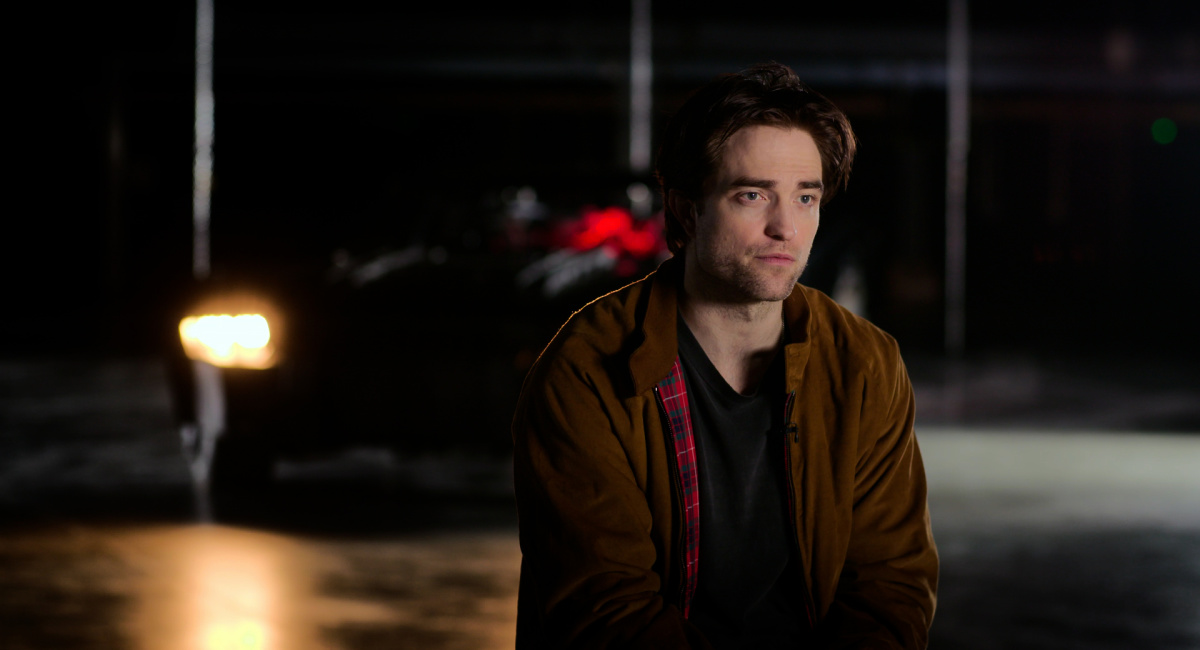
Robert Pattinson in ‘Superpowered: The DC Story.’ Photograph by Courtesy of Max/Warner Bros.
MF: The series even includes footage of Bob Kane admitting that he co-created Batman with Bill Finger, something that Kane had long denied and took sole credit for. Where did you find that?
MC: Yeah, I agree. When we saw it, we were like, wait, what? Oh my gosh, this is amazing, and kind of refutes the common knowledge in the world that he never acknowledged Bill. This is amazing. So yeah, there were things like that. Even just the old Joe Kubert, Julius Schwartz and Carmine Infantino interviews that we found. Apparently some guy at a Comic-Con just took them in a room and started filming them. It was amazing because we don’t really hear their voices anymore. So finding that stuff was really cool. I would just say also, with all the photos of the old DC offices and how they worked, that was really fun.
LI: I think also for us, we really want to bring you into that world as tangibly as we can. We want you to see the space. We want you to feel what it was like in that office. We want you to know that it was hot and it was tough, and they were struggling, and it was a man’s world, and there was one woman in there. You know what I mean? It’s like, we want you to feel that. So the more we can find those photos and bring that world to you, the better. The other thing too is, a lot of those old archival interviews obviously don’t look good, so that’s always a struggle. You don’t want to have a really low res, blurry image. So we worked with the graphic team to put them into kind of a comic book frame so that it looked more interesting. So I think that’s something Mark and I, and everyone are always trying to innovate documentaries, are always trying to say, how can we innovate graphically? How can we take the documentary form and push the boundaries and tell every new story differently with pacing, with graphics, with music, with shape, and with structure? We’re excited about always trying to be innovative.
MC: Humor as well, and look, this is a colorful subject. We want it to be fun. We want it to be fast and fun and humorous at times. But that’s kind of our approach.
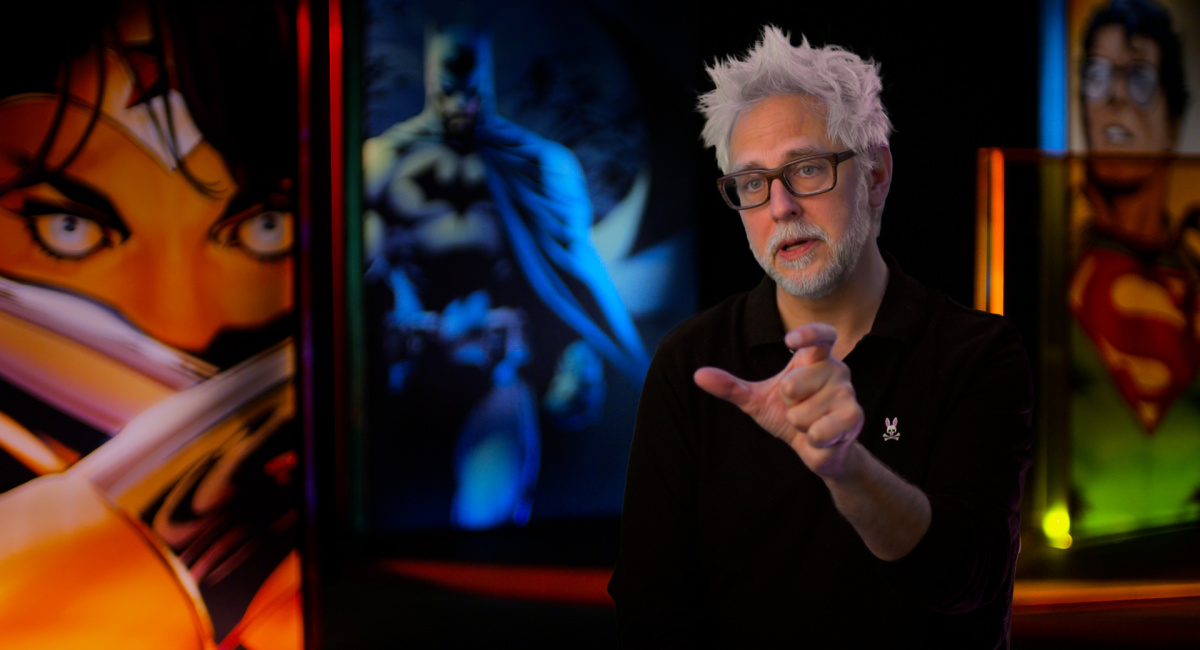
James Gunn in ‘Superpowered: The DC Story.’ Photograph by Courtesy of Max/Warner Bros.
MF: There have been a lot of changes recently at DC Studios with James Gunn and Peter Safran taking over. Gunn appears in the series but there is no mention of future projects like ‘Superman: Legacy.’ At what point did you have to lock the series and were unable to include any new announcements?
MC: I think it was August or September of last year. So it was before the big news of James Gunn taking over and everything. But Jim Lee loved that. He was like, look, we’ve done this. It’s a nice chapter break. Now, there’s going to be a new regime. It’s going to be a new path going forward. That’s a story that’s yet to be told. So yeah, he didn’t mind. I think it is exciting, though, that it’s not a stagnant thing. They’re always trying to innovate. They’re always trying to push, and yeah, it’s a moving target.
MF: DC Comics is more than just Superman, Batman and Wonder Woman, it has also included Vertigo, WildStorm, and Milestone comics. Can you talk about highlighting all of those companies in this series, in particular Milestone?
LI: I think that it was very important and timely for Milestone to have a resurgence when it did. When you look back at the original Milestone, that was the biggest comic book sales by Black creators ever. There’s obviously an opportunity to reinvent that, to bring that back, and especially at a time when Black people’s stories needed to be told, and needed to be heard. I think that the more we bring these stories out and make them honest, truthful and relevant to our own lives, then that’s how these comic books formed from the beginning. It’s in the DNA of DC Comics. So I think that it’s exciting to see these different variations, so to speak, of storylines and characters continue to be successful.
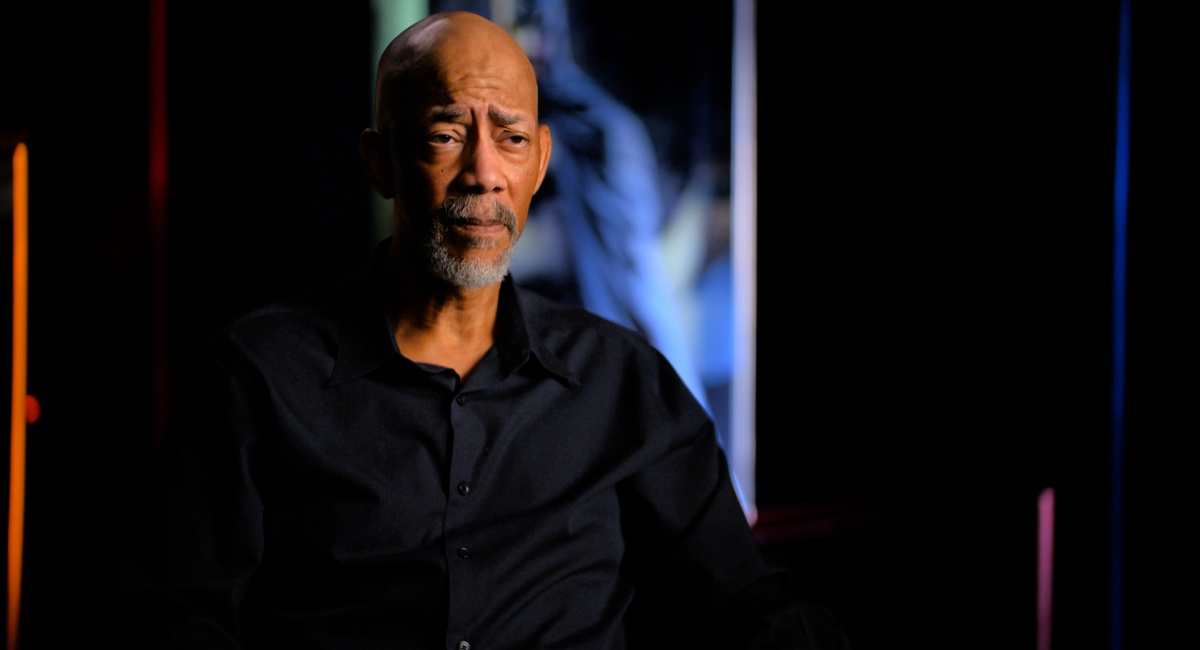
Denis Cowan in ‘Superpowered: The DC Story.’ Photograph by Courtesy of Max/Warner Bros.
MF: Leslie, were you a comic book fan before making this series and what did you learn about DC Comics that surprised you?
LI: I didn’t necessarily grow up as a DC aficionado. But I think that to me, I grew up around artists. My family, my grandfather and father are both artists. And myself, I’m an artist. So to me, reading these was inspiring, just from the artistic and story standpoint. But I never really followed the story arcs of these characters necessarily. I did grow up on the ‘Wonder Woman’ Show, though, as silly as that sounds and dates me a bit. But I love the ‘Wonder Woman’ TV show, and I watched the ‘Batman’ show. Those are sort of the campy era when I was a kid watching those. I think it was just, to me, again, the stories that I love to tell are stories about innovators, bold business people and creators who want to push the envelope in the genre that they’re working in. In this case, DC was pushing the envelope and completely reinventing itself time and time again, and finding new ways to keep their characters relevant and fresh. To me, that’s a great business story. It’s a great creative story, and those are the kinds of stories that I like to tell.
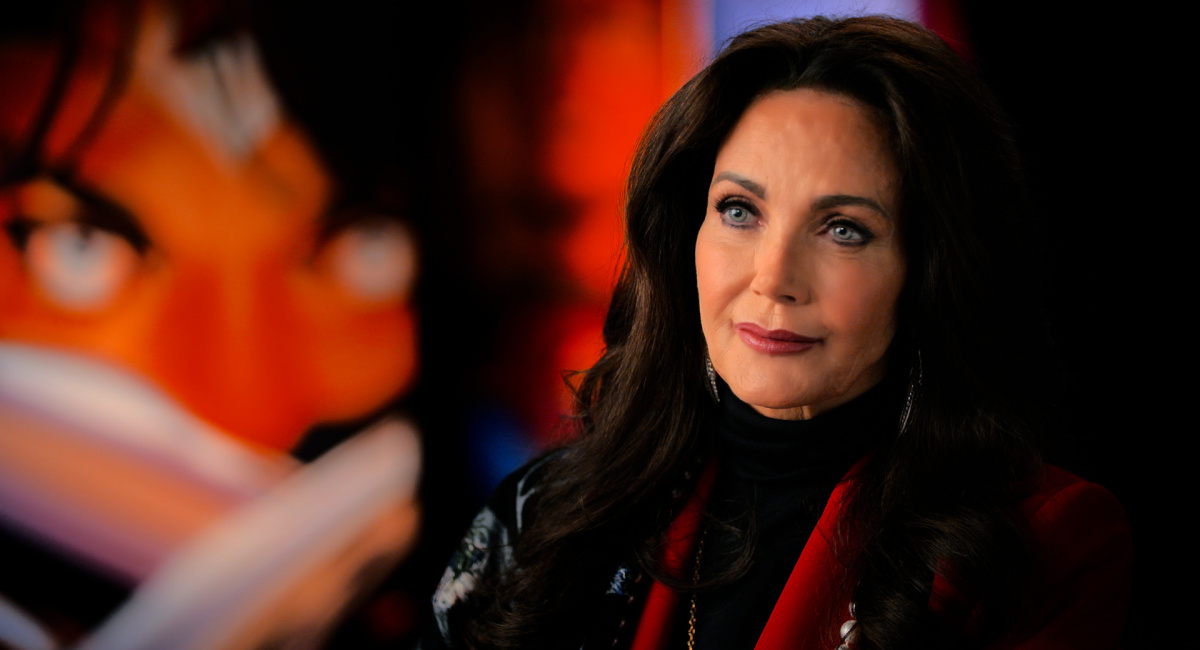
Lynda Carter in ‘Superpowered: The DC Story.’ Photograph by Courtesy of Max/Warner Bros.
MF: Finally, Mark, as a comic book fan what did you learn about DC Comics that surprised you, and who is your favorite DC character?
MC: Well, I guess what I didn’t know is that it was surprising to me that, for so long, that the creators weren’t respected. There was a stigma against it. There was a shame associated with it. Then on the fan side, of course, there’s a stigma of having liked these characters. I mean, there’s growing up with, you’re a nerd if you like this stuff and whatever. Because I don’t think people understand now what that was like. It was very much in the shadows. It was very much a secret, and now it’s mainstream. It’s out in the open. So that was a big eyeopener for me, just to hear it from the creators themselves. My favorite character? There’s so many. I don’t want to be boring and say Batman, but I would think that’s probably the one. It’s just something about the fact that this is a real person. We always were like, why do these things endure, right? Why have there been thousands of stories about this one character over 85 years? It’s like, well, he doesn’t necessarily have a superpower. He’s a human. I feel like it’s the humanity that people connect with. So I think, above all else, that’s why these things touch so many people. But man, I have tons of favorites.
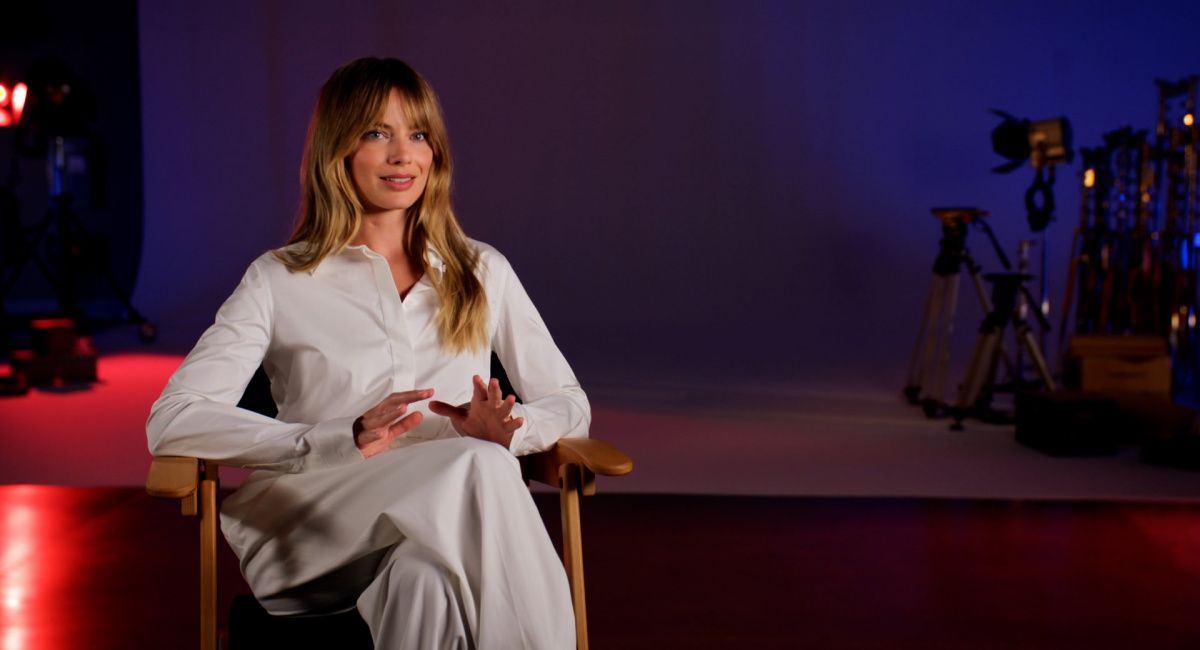
Margot Robbie in ‘Superpowered: The DC Story.’ Photograph by Courtesy of Max/Warner Bros.
DC Comics Movies:
Buy DC Movies On Amazon
Content Source: www.moviefone.com

